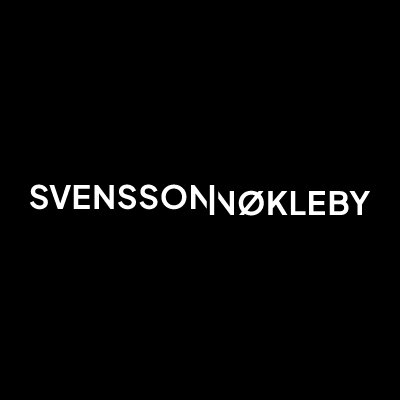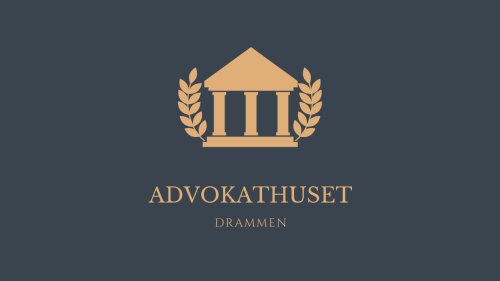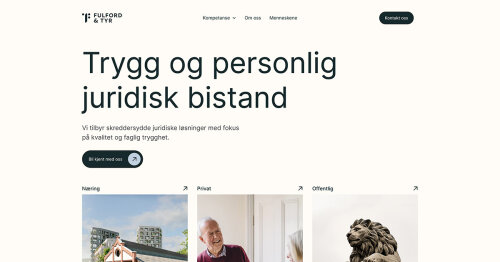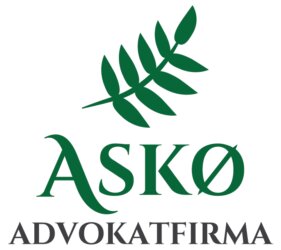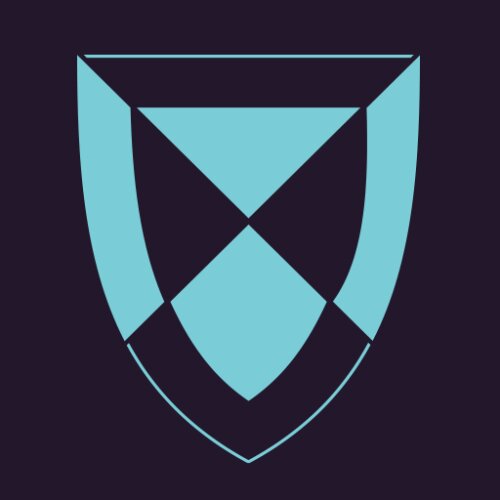Best Collaborative Law Lawyers in Drammen
Share your needs with us, get contacted by law firms.
Free. Takes 2 min.
Free Guide to Hiring a Family Lawyer
List of the best lawyers in Drammen, Norway
About Collaborative Law in Drammen, Norway
Collaborative Law is an alternative dispute resolution process where parties work together with their lawyers to resolve conflicts outside of court. In Drammen, Norway, this approach is increasingly used in family law cases, such as divorce, child custody, and property division, but it can also be applied to other civil disputes. The goal is to foster constructive dialogue, maintain relationships, and seek mutually acceptable solutions. Collaborative Law encourages transparency and good faith negotiation, offering participants more control over outcomes than traditional litigation.
Why You May Need a Lawyer
There are several situations in Drammen where engaging a lawyer experienced in Collaborative Law may be beneficial:
- You and your spouse or partner wish to divorce amicably and agree on most issues, but need professional guidance to ensure everything is handled properly.
- You want to resolve child custody or parenting arrangements without going to court and causing unnecessary conflict.
- You are facing a property division, inheritance dispute, or other civil conflicts and want a solution-oriented process.
- You need help understanding your legal rights and obligations during a separation or family dispute.
- You want to maintain a positive relationship with the other party, especially when children are involved.
Collaborative Law is often chosen by those who prefer to keep matters private, avoid stressful court proceedings, and work towards a tailored agreement that fits their unique circumstances.
Local Laws Overview
Norway's legal framework allows for alternative dispute resolution methods, including Collaborative Law, and these methods are recognized by the courts in Drammen. Important aspects of local laws relevant to Collaborative Law include:
- Family Law (Familierett): Norwegian law encourages parents to cooperate in parenting decisions and arrangements. Mediation is required before important hearings, and Collaborative Law can fulfill or complement this requirement.
- Contract Law: Any agreement reached in a collaborative process can be formalized as a legally binding contract. This is particularly important for property settlements and post-divorce arrangements.
- Privacy and Confidentiality: The collaborative process is confidential, meaning discussions cannot be used as evidence if the matter later goes to court.
- Legal Representation: All parties must be represented by lawyers trained in Collaborative Law throughout the process.
- Court Recognition: Settlements reached collaboratively can be submitted to the court for official approval, ensuring enforceability.
It is important to work with a lawyer familiar with both national law and local practices in Drammen to ensure your interests are protected.
Frequently Asked Questions
What is Collaborative Law?
Collaborative Law is a process where disputes are resolved through structured negotiations and meetings, with both parties and their lawyers working together to reach a mutually agreeable solution without going to court.
What types of cases are suited for Collaborative Law in Drammen?
Collaborative Law is commonly used in family law matters such as divorces, child custody, and financial settlements, but it can also be applied to other civil disputes where parties seek a cooperative approach.
How does Collaborative Law differ from mediation?
In Collaborative Law, each party has their own lawyer, and all negotiations happen together. In mediation, a neutral third party assists the parties in reaching an agreement, sometimes without lawyers present.
Is a Collaborative Law agreement legally binding?
Yes, once an agreement is reached through the collaborative process, it can be formalized into a contract or court-approved settlement, making it legally enforceable.
What if the collaborative process fails?
If the process breaks down, the parties can still go to court, but the collaborative lawyers must withdraw, and new lawyers must be retained for litigation.
How long does the Collaborative Law process take?
The duration varies depending on the complexity of the issues and the willingness of the parties to cooperate, but it generally takes less time than traditional court proceedings.
What are the costs involved in Collaborative Law?
Costs depend on the number of meetings required and the complexity of the case. While hourly rates may apply, Collaborative Law usually results in lower overall expenses compared to lengthy litigation.
Can we use Collaborative Law if we do not agree on everything?
Yes, Collaborative Law is specifically designed to help parties work through disagreements in a cooperative manner and find common ground.
Is Collaborative Law suitable for high-conflict cases?
While Collaborative Law is based on cooperation, it may not be suitable for all high-conflict cases, especially where there is a history of abuse or domination, but many disputes can still benefit from the process if both parties are willing.
Where can I find a Collaborative Law lawyer in Drammen?
You can consult local law firms, bar association directories, or ask for recommendations from organizations specializing in dispute resolution in Drammen.
Additional Resources
There are several resources and organizations that can help individuals in Drammen seeking legal advice or information about Collaborative Law:
- Norwegian Bar Association (Advokatforeningen) - Provides lawyer directories and information on legal specialties including Collaborative Law.
- Barn- og familievernkontor (Child and Family Welfare Office) - Offers family mediation and support services in Drammen.
- Statens sivilrettsforvaltning (Norwegian Civil Affairs Authority) - Supervises family mediation services and provides resources.
- Local legal aid offices in Drammen - Provide guidance for those requiring financial assistance with legal matters.
- Community mediation centers - Some offer neutral mediation or collaborative services for civil disputes.
Next Steps
If you believe Collaborative Law may be right for your situation, start by researching lawyers in Drammen who are experienced in this area. Arrange an initial meeting to discuss your circumstances, goals, and suitability for the collaborative process. Bring relevant documents and be prepared to explain your needs. Your lawyer can guide you through the Collaborative Law process, outline the likely timeline, and propose the next steps. If necessary, ask about costs, confidentiality clauses, and how your agreement can be made legally binding. Taking early action increases the chances of a positive outcome for everyone involved.
Lawzana helps you find the best lawyers and law firms in Drammen through a curated and pre-screened list of qualified legal professionals. Our platform offers rankings and detailed profiles of attorneys and law firms, allowing you to compare based on practice areas, including Collaborative Law, experience, and client feedback.
Each profile includes a description of the firm's areas of practice, client reviews, team members and partners, year of establishment, spoken languages, office locations, contact information, social media presence, and any published articles or resources. Most firms on our platform speak English and are experienced in both local and international legal matters.
Get a quote from top-rated law firms in Drammen, Norway — quickly, securely, and without unnecessary hassle.
Disclaimer:
The information provided on this page is for general informational purposes only and does not constitute legal advice. While we strive to ensure the accuracy and relevance of the content, legal information may change over time, and interpretations of the law can vary. You should always consult with a qualified legal professional for advice specific to your situation.
We disclaim all liability for actions taken or not taken based on the content of this page. If you believe any information is incorrect or outdated, please contact us, and we will review and update it where appropriate.



